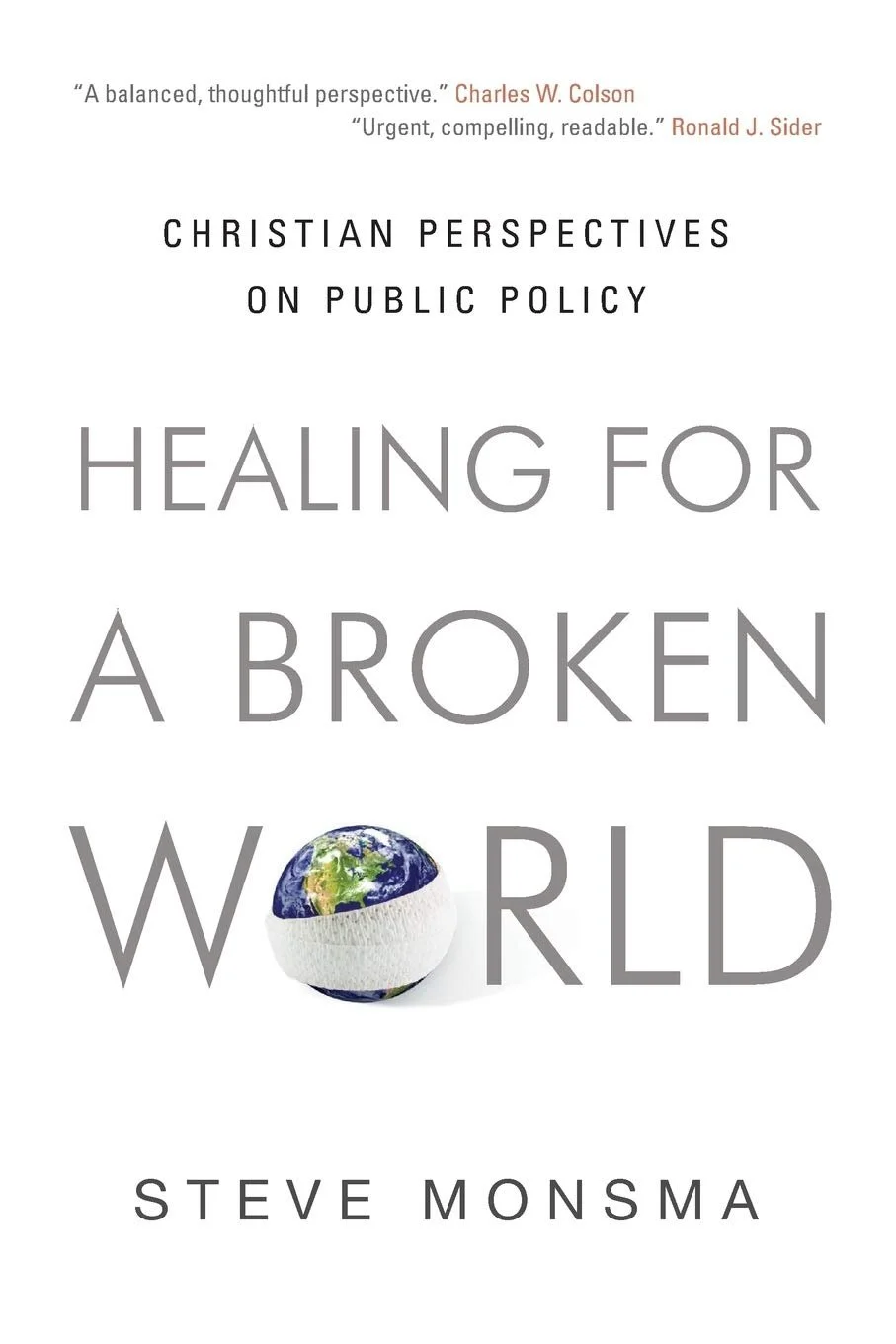Healing for a Broken World
What does it mean to be a good Christian citizen?
If we’re honest, it’s not a question many of us think that much about. We know whether we lean to the right or the left politically, whether we favor limited government or not, and we may feel strongly about a number of hot-button issues. But have we considered how our theology and our understanding of Scripture ought to shape the ways in which we practice citizenship? Have we thought theologically about citizenship?
Being a good Christian citizen means a lot more than going to the voting booth once every four years and forwarding emails to relatives in the time in between. But an election year is as good a time as any to give some thought to citizenship and what it might mean for us to be good Christian citizens.
Stephen Monsma, author of Healing for a Broken World: Christian Perspectives on Public Policy (Crossway) and former member of the Michigan state House and Senate, believes we need to start with the big story of the Bible. “Thinking about creation, sin and redemption,” he writes, “are crucial to right thinking about today’s public-policy issues.”
Creation. Sin. Redemption. Not where we usually start when thinking about public policy, is it?
Starting in Genesis, we see that when God created the world and put Adam and Eve in the garden, they experienced shalom. “Shalom,” Monsma writes, “is the peace one finds among people who delight in living, working, and achieving together.” That’s God’s design for life on earth. Obviously, that’s not life as we know it. Humanity disregarded God’s intentions and rebelled against him in sin. We see the collateral damage around us every day. But God didn’t give up on us. In Christ, he has brought about redemption — restoring humanity’s relationship to God, and enabling us to be reconciled to each other and to the world in which we live. Shalom is a real possibility again. It won’t be fully realized until Christ returns and brings about the new heavens and the new earth, but there are bits and pieces of it everywhere, even in the places we’d least suspect.
Even in government.
Drawing on Abraham Kuyper’s “sphere sovereignty” teaching that there’s an important purpose in God’s design for every sphere of society, including family, church, state, business, art and academia, Monsma shows that despite what some Christians and pundits may lead us to believe, government does have an important role to play in the flourishing — yes, the shalom — of society.
In the first section of the book, Monsma lays out the biblical principles that are needed as a foundation before considering specific application in public policy terms. Building on the creation-sin-redemption motif, he argues that “acting as Christ’s agents of redemption in the political realm” we’re to support what is just. The Bible is clear in its condemnations of injustice, whether at the hands of his people, at the hands of unbelieving citizens, and at the hands of the government. Doing justice and working against injustice is a crucial part of what Christian citizens are to do in their own lives as they’re able, and they are right to ask the same of governing authorities. This is directly tied to the principle of solidarity, “the conviction that Christians cannot simply sit idly by when their fellow human beings are suffering and in need.”
While Monsma affirms the positive role the state can and must play, he also clearly understands its limits, and sees “civil society” (social institutions and organizations) playing a crucial part as well. Indeed, as Monsma says, some of the best work the government does to contribute to human flourishing is in partnership with nonprofits and social service providers, including many faith-based ones.
The second half of the book tackles specific issues: church and state; abortion and euthanasia; poverty; creation care; human rights; poverty in Africa; and war and terrorism. While Monsma wisely refrains from making pronouncements about the particular positions all Christians ought to take on each of these complex issues, he does explore them in detail and in light of the creation-sin-redemption story of the Bible, and carefully considering the implications of those central principles of justice and solidarity.
Thinking theologically about citizenship is an essential, ongoing process that will equip us to better participate in politics and civil society — not just once every four years, but as a regular part of following Christ and living in light of the implications of the good news, “far as the curse is found.”
Thinking theologically about citizenship should also give us a measure of humility, as we recognize the sheer complexity of the issues, and as we realize we’re not innocent bystanders in the undoing of shalom. May that humility serve us well as we in turn seek to love our neighbors as Christian citizens.
How might the biblical story of creation, sin and redemption change the way you consider citizenship and public policy? Are the principles of justice and solidarity central to your understanding of citizenship and public policy? If not, what principles are foundational for you, and how do they relate to the Christian story?
